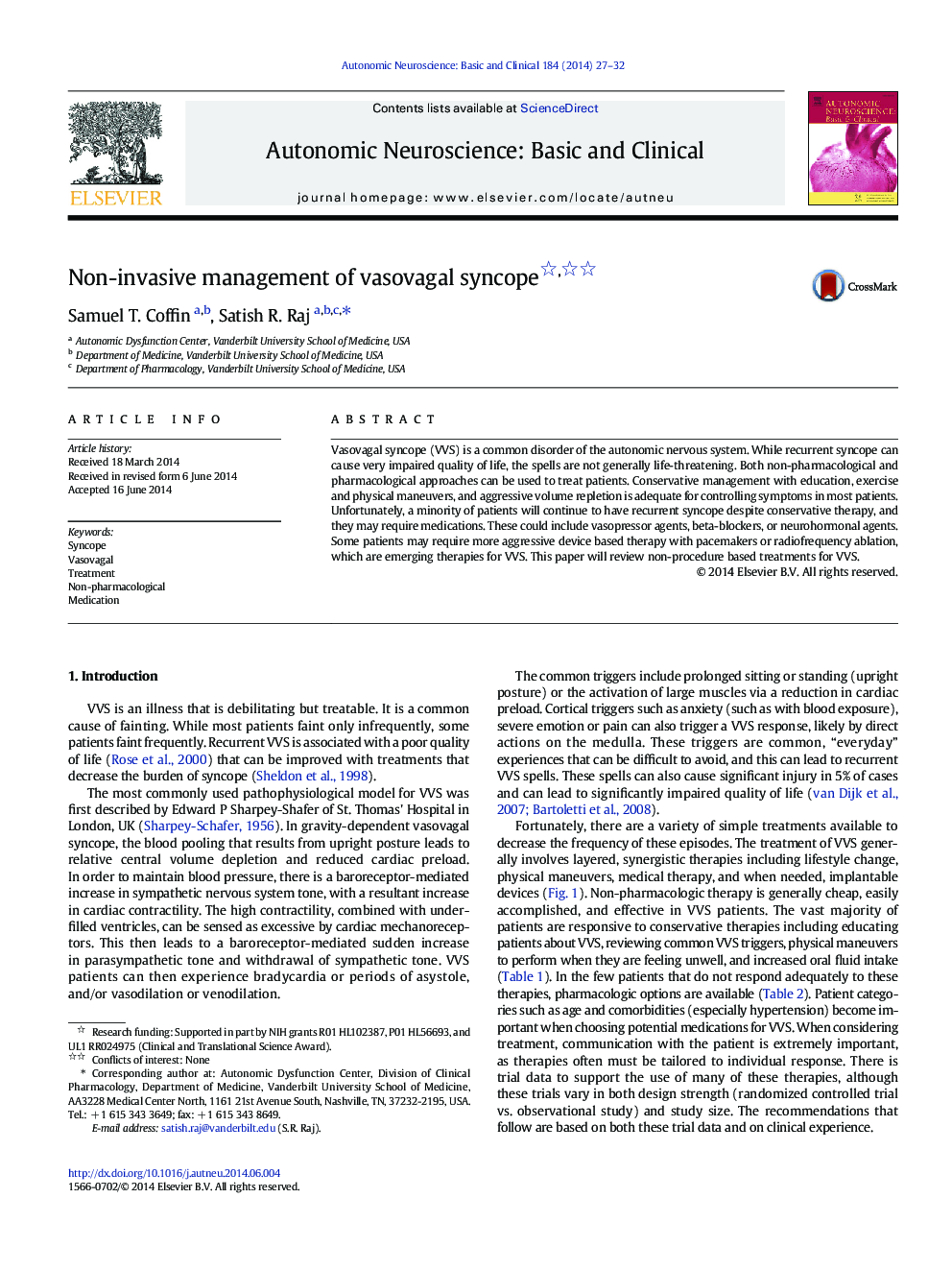| Article ID | Journal | Published Year | Pages | File Type |
|---|---|---|---|---|
| 3034637 | Autonomic Neuroscience | 2014 | 6 Pages |
•Non-pharmacological therapy is often effective in preventing vasovagal syncope.•Drugs may be needed in select patients only.•Education, hydration, and physical counter-measures are quite effective.•Midodrine and fludrocortisone are the primary drugs used for VVS.
Vasovagal syncope (VVS) is a common disorder of the autonomic nervous system. While recurrent syncope can cause very impaired quality of life, the spells are not generally life-threatening. Both non-pharmacological and pharmacological approaches can be used to treat patients. Conservative management with education, exercise and physical maneuvers, and aggressive volume repletion is adequate for controlling symptoms in most patients. Unfortunately, a minority of patients will continue to have recurrent syncope despite conservative therapy, and they may require medications. These could include vasopressor agents, beta-blockers, or neurohormonal agents. Some patients may require more aggressive device based therapy with pacemakers or radiofrequency ablation, which are emerging therapies for VVS. This paper will review non-procedure based treatments for VVS.
